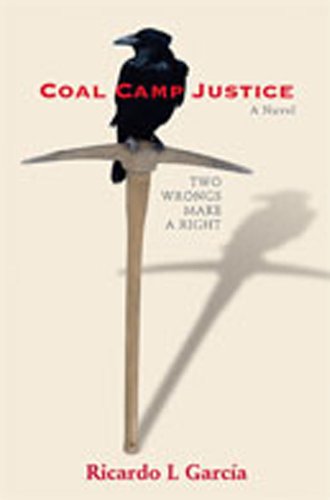Coal Camp Justice
The time is the Great Depression; the place is a coal mining community in northern New Mexico. Raymond “Swannie” Swanson struggles with the bottle while his fellow miners struggle with a tyrannical mining company. Swannie’s commitment to sobriety takes an ironic turn when he loses his job at the mine and providence provides him a job as a “dry agent,” a lawman who enforces Prohibition. Meanwhile, his friends suffer under a corporate domination that one African-American miner says is worse than his grandfather’s slavery. Unionization hovers in the background as a wistful but dangerous savior. Twenty men, women and children were killed in a miners strike just seventeen years earlier in nearby Ludlow, Colorado.
Swannie’s crusade to smash every still in the county leads to his disappearance. The crooked mine managers accuse Swannie’s African-American friend, Julian Heard, of his murder. Then an odd thing happens to the plot. Swannie all but disappears from the story, and attention shifts to Julian Heard and his family. Despite this narrative disconnect, Ricardo García perfectly balances the harshness of company-town mining life with the saving graces found in family and friendship. The chapter on the annual Fourth of July baseball game stands as an ode to the ways competition and teamwork can bring out the best in our natures.










